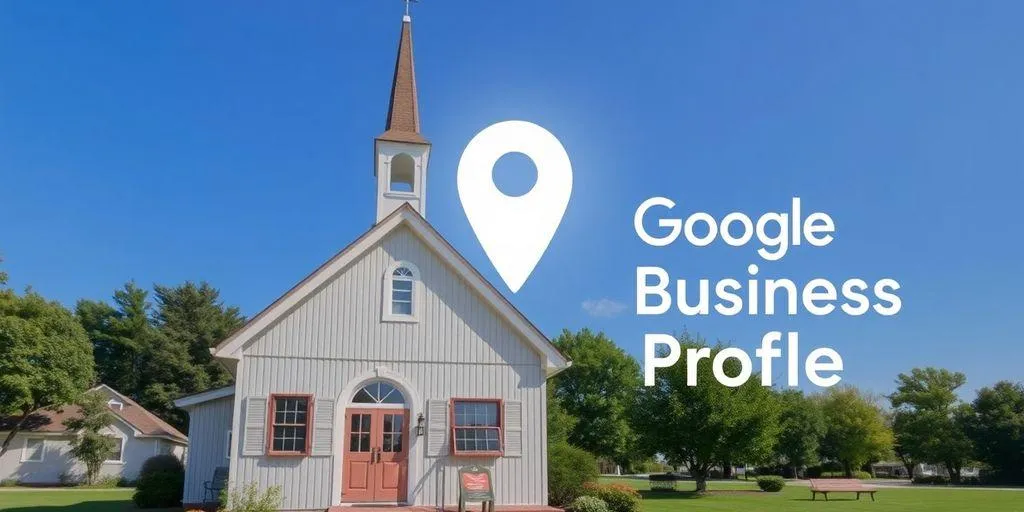
Dominating Local Church SEO: By Mastering Your Google Business Profile
If you're looking for a straightforward way to help your church connect with more people, local SEO is a great place to start. This is how your church shows up when folks search for things like "churches near me." It's a big deal because it's often the very first impression someone gets of your church online, even before they visit in person.
Dominating Local Church SEO: By Mastering Your Google Business Profile
Optimize Your Church Website
Making your church website work for local SEO is a bit different from regular search optimization. We're mostly talking about getting your church to show up in that "map pack" section on Google. The key here is to use your church name and location in your website's content.
For example, your main website title (the biggest words on the page) should try to include "church" and your city. If your church is called "First Baptist Church" and you're in Georgetown, Texas, then "First Baptist Church of Georgetown, Texas" is a good title. If your church name doesn't have "church" in it, like "New Hope Hawaii Kai," you might add a tagline such as "New Hope: A Church in Hawaii Kai." This helps Google understand what you are.
Also, spread your location names throughout your website, especially on your homepage. Think about all the areas people might search from. For instance, if you're in Hawaii Kai, which is part of East Honolulu, Honolulu, and Oahu, you'd want to use all those terms. This helps you reach a wider group of people looking for a church. And don't forget, your website should be easy to use on phones and kept up-to-date with sermons and events. Google likes that too.
Get Listed in Online Directories
This is something many churches don't think about enough: getting listed on online directories. There are tons of these, from well-known ones like Yelp and Yellow Pages to others you might not have heard of. The main reason these matter is that Google looks for your church's name, address, and phone number (NAP) to be consistent and accurate across all these sites.
It's not a one-time thing; it takes some work to keep these listings current. People can sometimes suggest changes to your information on these sites, so you have to keep an eye on them. While some directories are more important than others (like Facebook over a smaller one), having your NAP information correct on as many as possible sends a strong signal to Google that your church is a real, active place. You can do this manually, which takes a lot of time, or use a service to help.
Encourage Online Reviews
Getting online reviews is really important, especially positive, five-star reviews. Now, bad reviews might happen, and that's okay. Focus on what you can control. Google actually encourages you to ask for reviews, unlike some other sites like Yelp.
Think of reviews as a way for people to share their story or "testimony" about your church. It's a chance for them to publicly say how much your church means to them. You can ask your staff and church members to leave reviews. For example, you could mention it in announcements: "If our church has been a good place for you, it would mean a lot if you shared a review on Google." This really helps your church show up higher in local searches.
Create Local Content
To reach people in your community, you need to create content that's relevant to them. This means talking about local things on your website. If your church is involved in community events, like partnering with a food pantry or hosting a neighborhood gathering, make sure that information is on your site.
Think about how you name your church events online. For instance, instead of just calling it "First Baptist Easter Egg Hunt 2024," you could call it "Georgetown Community Easter Egg Hunt at First Baptist Church." People often search for events like "Easter egg hunts in Georgetown" or "Halloween events in Austin." By using these community-focused names and including your city and surrounding areas in your content, you're telling Google that your content is for a local audience. This helps your church appear in those local searches.
Analyze and Adjust
It's a good idea to regularly check how your church is doing with local SEO. You can use free tools to see where you stand right now. This helps you figure out what changes you might need to make.
Look at your online listings and see how your church ranks. A good practice is to check out other organizations in your area that are ranking well, even if they're not churches. See what they're doing differently on their websites or in their online presence. It's not about competing, but about learning and improving your own visibility. You're responsible for helping your church connect with people, and seeing what works for others can give you ideas. Measure your progress over time, and make adjustments based on what you learn. This can really help your church grow its online presence.

